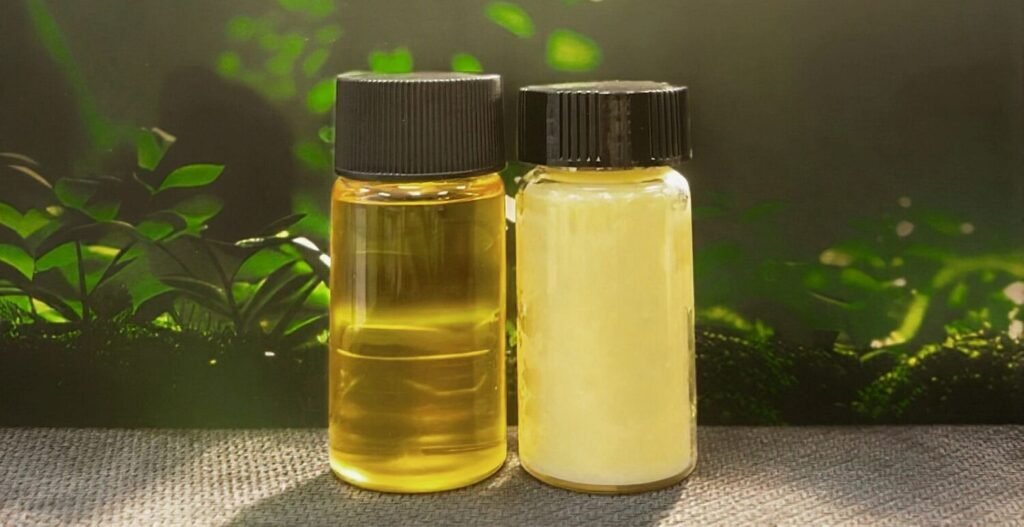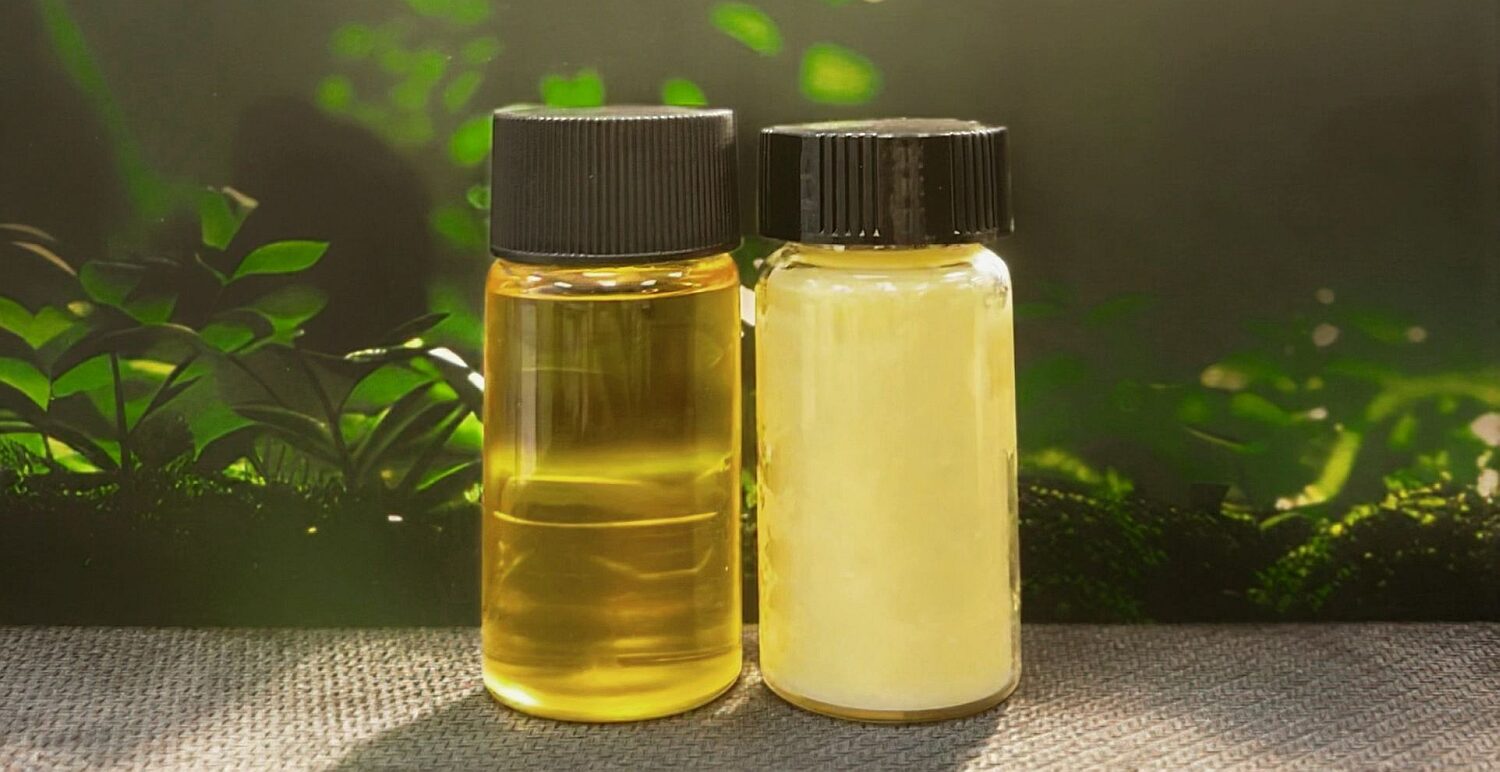
Singapore-based startup Terra Oleo has emerged from stealth with a $3.1 million round to support its yeast-based fermentation platform producing tailored lipids to replace palm oil fractions and cocoa butter for a range of industries.
The round was backed by ADB Ventures, The Radical Fund, Elev8.vc, Better Bite Ventures, a strategic investor from the palm oil industry, and other investors.
Founded in 2023 by Shen Ming Lee; Boon Uranukul, PhD; and Min Hao Wong, PhD; Terra Oleo has signed product testing agreements with firms in oleochemicals, food, personal care, and cosmetics.
The firm, which has just been selected to join Breakthrough Energy’s 2025 Fellows Program, is now looking to scale from lab to pilot scale while advancing customer testing and validation, Shen Ming Lee told AgFunderNews.
“We currently co-manufacture in Thailand and Singapore and plan to scale up our first products through a mix of larger-scale co-manufacturing and potentially a joint venture with a manufacturing partner.
“Since investors today are generally hesitant to fund large, capex-intensive plants, our goal is to collaborate with manufacturing partners—who would likely also be our customers—to help build a pilot facility.”
The sweet spot for oils from fermentation
The unit economics of microbial fermentation may not (yet) stack up to make drop-in replacements for highly commoditized oils and fats. But they do make sense for select ingredients and applications where companies are willing to pay a premium for fats that deliver specific functionality and do not come with the ethical and environmental baggage of tropical and animal fats, said Shen Ming Lee.
“We begin with higher-margin products, where strong demand already exists. Over time, as we achieve economies of scale and push innovation further, we’ll be able to bring costs down and expand into much larger segments of the oils and fats market – moving well beyond niche high-value, low-inclusion applications and ultimately creating far greater impact.”
By using lower-cost feedstocks, Terra Oleo can also cut costs, she said: “We source cost-effective waste streams from starch, biodiesel, and oleochemical production, which are abundant across Southeast Asia. One of our feedstocks is up to 70% cheaper than dextrose.”
‘Demand is mainly driven by a need for security of supply’
Pressure on palm oil and cocoa supply chains are driving up costs and supply volatility, prompting growing interest in alternatives, while many firms are also seeking a ‘palm oil free’ positioning for environmental reasons, she added.
“Our sense is that demand is mainly driven by a need for security of supply, especially for cocoa butter, initially, with a long-term interest in exploring our alternative production method to meet ESG goals.
“The key is product–market fit. Buyers want ingredients that match their existing specifications and properties exactly, so they can be dropped into current manufacturing processes and supply chains without disruption. The problem is that most fats produced by naturally occurring microbes don’t meet those requirements. That’s where synthetic biology comes in. It lets us fine-tune the yeast so the fats we produce look and behave just like what industry needs.”

‘Engineering the strain is the most effective and often only way to achieve certain desired fat compositions’
Terra Oleo’s core focus is on “engineering yeast to meet customer specifications directly—whether that’s matching fatty acid profiles, triglyceride compositions, or the exact melting behavior of fats like cocoa butter and palm oil fractions,” she added.
“For some customers, the physical properties — like melting point or crystal structure — are critical. For others, it’s the fat composition itself. We work backwards from these needs. We have a portfolio of proprietary yeast strains, each producing slightly different fat profiles and melting ranges for cocoa butter. This gives us flexibility to offer tailored solutions across different applications and customers.”
By combining genetic, enzyme, and metabolic engineering, Terra Oleo re-tools the yeast’s oil-making pathways to create fats that “match — and in some cases exceed — the properties of cocoa butter and specialty palm-derived ingredients but produced in a far more sustainable way,” she claimed.
“We believe engineering the strain is the most effective and often only way to achieve certain desired fat compositions. To increase yields, we employ a combination of strain development and bioprocess and downstream processing optimization.”
Labeling
As for labeling, said Shen Ming Lee, who is targeting markets in the US and Singapore, it’s “too early to answer with complete certainty before we’re in the market. Technically, our products are bioequivalents of the fats they’re designed to replace.
“For non-food applications such as cosmetics and personal care, our oils would simply be labeled according to their main fatty acids, which is the current industry standard. In those markets, labeling isn’t a concern because customers are more focused on performance.”
For food applications such as chocolate, the situation is slightly different, she noted. “We expect our product to be labeled as a ‘Cocoa Butter Equivalent.’ This is a recognized category in the food industry for fats from non-cocoa sources that replicate the functionality of cocoa butter.
The post Terra Oleo emerges from stealth with fermentation platform to make high value fats with microbes appeared first on AgFunderNews.



